As a Speech and Language Therapist, it is important to understand the benefits of progress monitoring data collection in speech therapy. All students have speech and language goals to meet and it is the SLP’s job to monitor and collect data in order to prove that students are (or are not) making progress towards their goals. But how much time should we spend collecting data? We want to collect the data but data collection should only take up a small portion of our therapy session. Spending too much time on data collection and not enough time on direct instruction is a mistake I see most often in new SLPs. Progress monitoring is something that I find really beneficial for data collection as an SLP.
Here’s why:
- Progress monitoring lets you focus on teaching, not just data collection.
- Progress monitoring shows the true reflection of the skill(s), not just the cueing level from the SLP.
- Progress monitoring is more manageable to do with group therapy compared to traditional data collection.
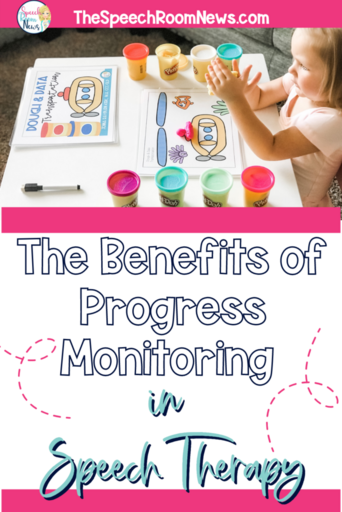
What exactly is progress monitoring?
Progress monitoring is a scientifically based practice used to assess a student’s academic progress and evaluate the effectiveness of instruction. Progress monitoring tells the SLP or teacher what the student has learned and what still needs to be learned. Progress monitoring is used a lot in special education, to help monitor IEP goals of students with disabilities. Progress monitoring can be done with students individually or in a group.
In progress monitoring, short probes are used to evaluate a student’s progress in specific areas. Progress monitoring means collecting during predetermined intervals. This is in contrast to more traditional data collection that would mean the SLPs collect data during each activity completed during therapy.
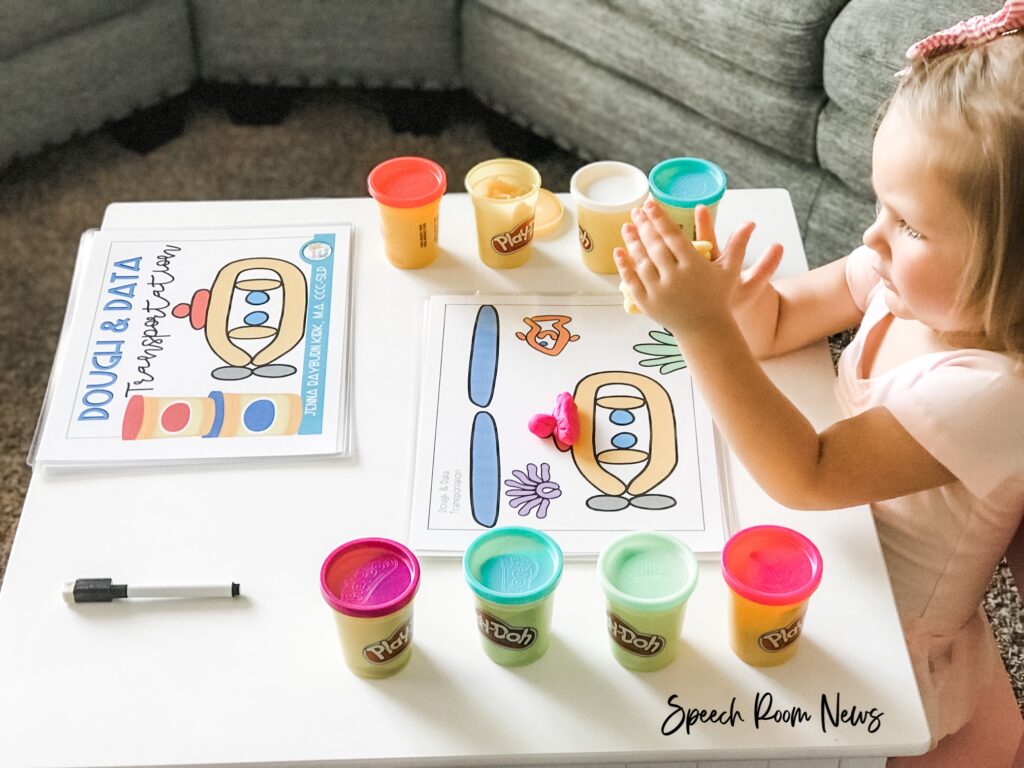
How often should you collect data from progress monitoring?
This is a tricky question and will differ for all SLPs. How often you should progress monitor your students to collect data can depend on what the student’s Individualized Education Plan (IEP) reflects. Personally, I like to collect data every other week. On the off weeks, I reflect success rates during teaching (ie: 75% with visual and verbal cues during instruction) I like to progress monitor at the beginning of the session so that I am able to monitor students without giving them cues. If I would collect the data at the end of the session, I’m actually measuring their ability with max support and I want to see their true ability.
How do you collect data from progress monitoring?
In truth, you have a lot of flexibility with HOW you progress monitoring for speech therapy. You can create your own probes and collect data at certain intervals during your semester. With SLP caseloads busting at the seams, you are probably hoping to find something easier to simplify your workload. There are many different tools out there for progress monitoring data collection in speech therapy.
There are two resources that I like to use the most for progress monitoring data collection in speech therapy. One tool is for younger students and one tool applies more to older students. This Dough and Data line of resources is perfect to use with younger students in grades pre-K through 2nd grade when progress monitoring. It has 8 different products in it, which makes it great to use all throughout the school year. The best part is that there is NO PREP WORK! Dough and Data is great for gathering data collection during PLAY with this age group! Students have so much fun with this that they have no idea that you are secretly collecting data on their speech goals!
All you have to do is print out the play dough mats. Place them in a sheet protector and give each student some play dough (which they love!). Use the tracing outlines to create each image. All the shapes are made from long skinny rolls, meaning even students with fine motor difficulties can have success tracing these dough shapes!
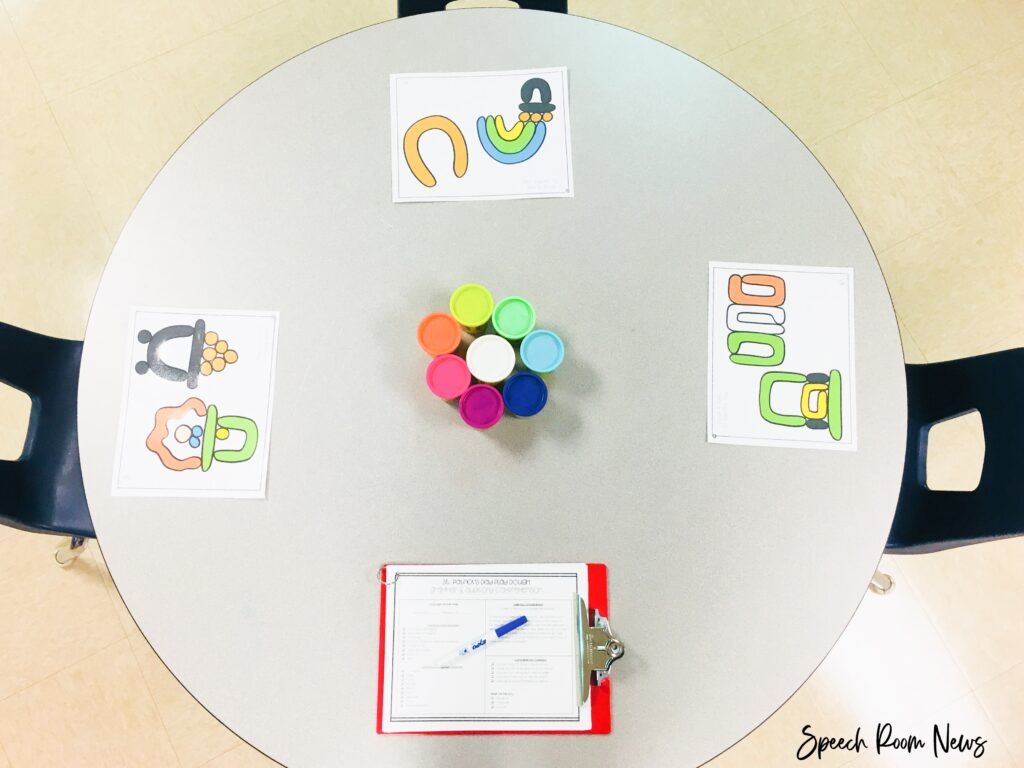
The tracing mats go with each season:
–Fall
Then, simply facilitate the language and articulation therapy through play as students are using the play dough.
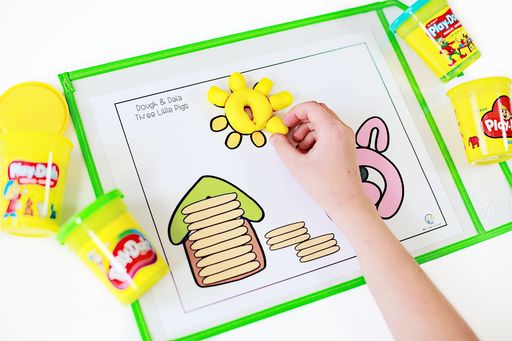
Utilize the five different data probing sheets to target the following skills:
- Articulation (F/V, K/G, L, TH, R, S/Z, S blends, R blends, L blends)
- Vocabulary: Labeling, Concepts, Categories, Functions
- Phonological Awareness: Rhyming, Syllables, Blending, Initial Sounds
- Questions & Directions: Yes/No, Who, What, When, Where, Why, 1-step, Before/After, If/Then
- Grammar and Auditory Comprehension: Grammar Observations, Functions of Language, Listening Comprehension Story and Comprehension Questions.
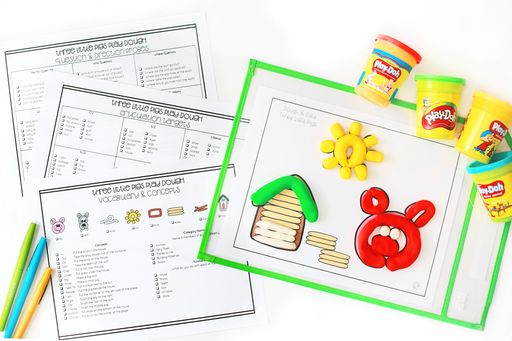
For older students, I like to use progress monitoring data collection resources from fellow SLP, Natalie Snyders. Her Language Progress Monitoring Tool (Upper Level) for Speech Language Therapy is probably my favorite but she has a TON of resources. This resource can be used with students from 2nd grade through 8th grade (and possibly older depending on skill level). She has put all of the work in to make it super easy when administering to students; It is a very comprehensive 52 page packet. There is an overall screening that you can use on students for each item, as well as Progress Monitoring Record Pages and Stimulus Items for a variety of language skills.
Another option for progress monitoring is a digital subscription. You can use a paid service like SLP Toolkit with pre-made probes. So tell me- do you progress monitor for data collection in speech therapy? What are your favorite progress monitoring tools?
Join the SRN newsletter!

I'm so glad you stopped by! If you'd like to keep up with the newest posts and get exclusive free downloads, please sign up for the newsletter! Your first freebie is ready as soon as you subscribe and confirm your email!

Leave a Reply